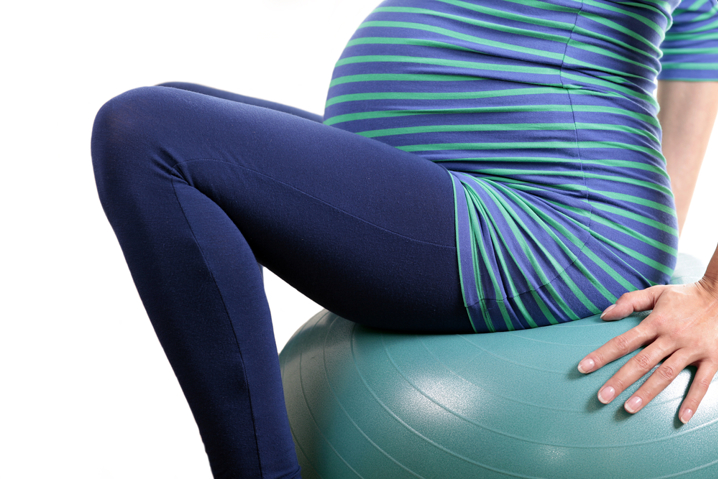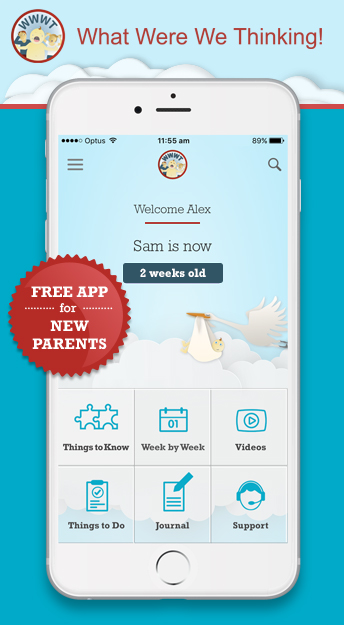You and your pelvic floor

Incontinence or light bladder leakage (LBL) can be a wee problem for post-partum women. Here's what to do to maintain your core strength after giving birth.
Growing a baby and giving birth is probably the most radical process your body will experience. Your body changes, hormones rage and your maternal instincts kick in as you become more aware of your baby's needs and place less importance on your own. As your body adapts to your life as a mum, it's vital to look after yourself from the inside out.
With a third of women suffering from incontinence after they've had a baby, the muscles that support your bowel, bladder and uterus need their own workout. Janetta Webb, a physiotherapist and pelvic floor specialist at Jean Hailes for Women's Health says that after birth these muscles are at their weakest.
"The hormonal changes of pregnancy, the increasing weight of your baby and then the stretching of these muscles during your baby's birth mean that you need to pay special attention to the pelvic area afterwards. That's everyone, even women who have had a Caesarean delivery," she says.
So, how soon after birth can you begin?
"These exercises should be started as soon as you feel comfortable doing them after birth, ideally within the first few days," Janetta explains, "But, if it is painful to squeeze the muscles, wait another day and then try again."
Building inner strength
Research shows the stronger your pelvic floor is before you give birth, the less likely you'll be prone to incontinence. But don't worry if you haven't been engaging your core, it's never too late to begin working your muscles. For the most effective technique Janetta suggests lying down on your back or side with your knees bent.
"You'll be able to feel your pelvic floor muscles when you squeeze the muscles around the anus, vagina and urethra all together and draw these muscles upwards. Ensure you aren't holding your breath and that you don't squeeze your buttocks, legs or move your back. It's a small movement inside," she says. Start by holding your stance for three seconds and then release the tension, before working up to six seconds and eventually to eight. Repeat the pelvic floor hold up to 15 times before resting.
Janetta recommends trying to do this a few times every day, when you're in bed or feeding your baby, before progressing to performing the exercises standing up with your legs hip-width apart. "If you don't feel anything happening, don't give up. It's important for you to get your muscles working, so try changing to a sitting position to get started."
When to get help
While LBL is common among women, leaking from your bladder shouldn't be ignored. Seek help from a GP, your obstetrician or pelvic floor physiotherapist if you find that you're leaking urine during exercise or when you laugh, cough or sneeze. "You should also look for pain in the pelvic area during sex or a feeling of heaviness in the vagina, as well as loss of bladder or bowel control," says Janetta.
Prevent and manage your bladder control
Follow these tips from Janetta to maintain a strong pelvic floor:
- Be pelvic floor aware: "Get into the habit of squeezing your pelvic floor when you cough, sneeze, laugh or lift to prevent leakage and support pelvic organs."
- Keep it light: "Avoid lifting more than 10 kilos, especially before your baby is six weeks old and until you can work the muscles effectively when you lift."
- Take it easy: "Choose low-impact fitness activities such as walking, swimming and bike riding (when you are comfortable) while you strengthen your pelvic floor. If any activities in your fitness program cause leakage or vaginal heaviness, it's your body telling you to stop and get help. Visit pelvicfloorfirst.org.au and download the Pelvic Floor First exercise app."
- Stay regular: "Avoid constipation and straining to empty your bowels. Keep your fluids up and eat a variety of healthy foods to keep your bowels moving easily."
- Horizontal help: "If you can, lie down during the day when you are first home from hospital, when feeding or when your baby sleeps. This gives your muscles a rest too."
Originally published by Now to Love.
Posted in: Your needs








